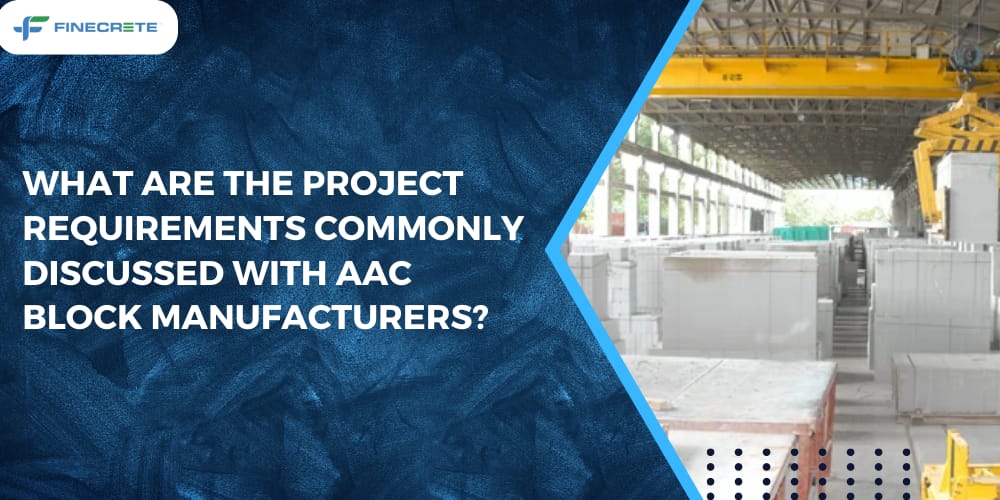When it comes to constructing a building or infrastructure project, choosing the right materials is essential for ensuring strength, durability, and efficiency. Autoclaved Aerated Concrete (AAC) blocks are lightweight, energy-efficient, and offer excellent thermal insulation properties. As a result, many project managers and architects are increasingly turning to AAC block manufacturers for their construction needs.
Before engaging with AAC block manufacturers, it is crucial to discuss specific project requirements to ensure a successful outcome. Here are some common project requirements commonly discussed with AAC block manufacturers in Delhi:
- Load-bearing capacity:
One of the primary considerations for any construction project is the load-bearing capacity of the materials. The load-bearing capacity determines the structural integrity and safety of the building. AAC blocks come in different densities, and the manufacturer needs to understand the intended load-bearing requirements of the project to recommend the appropriate density of blocks.
This information helps ensure that the AAC blocks can support the weight of the structure effectively.
- Thermal insulation:
Energy efficiency is a crucial aspect of modern construction. AAC blocks have excellent thermal insulation properties, helping to reduce heat transfer and maintain a comfortable indoor environment.
Discussing the project’s thermal insulation requirements with AAC block manufacturers will enable them to suggest the appropriate thickness and density of blocks to achieve the desired insulation performance.
- Sound insulation:
In addition to thermal insulation, sound insulation is also an important consideration for many projects. Whether it is a residential building, commercial space, or educational institution, controlling sound transmission between rooms or from the outside environment is essential.
AAC blocks offer good sound insulation properties, and discussing the project’s specific sound insulation requirements with the manufacturer will allow him to recommend the appropriate block thickness and design for optimal soundproofing.
- Fire resistance:
Fire safety is a critical concern in building design. AAC blocks are non-combustible and have excellent fire-resistant properties. However, the level of fire resistance required may vary depending on the project’s specifications.
By discussing the project’s fire safety requirements with the AAC block suppliers in Delhi, you can obtain blocks with the necessary fire ratings to meet your project’s needs.
- Durability and weather resistance:
Construction materials should be able to withstand the environmental conditions they will be exposed to. AAC blocks are known for their durability and resistance to various weather conditions. However, specific project requirements may demand additional protective measures or modifications.
By discussing the project’s location, climate, and exposure to environmental elements with the manufacturer, you can obtain guidance on the best AAC block formulations or coatings to ensure long-term durability and weather resistance.
- Design flexibility:
Architects and designers often require flexibility in material usage to achieve their creative vision. AAC blocks can be easily cut, shaped, and modified to meet specific design requirements.
Discussing the project’s design flexibility needs with your AAC block manufacturer will allow him to provide you with guidance on block sizes, shapes, and customization options to accommodate the design intent.
Conclusion:
It is essential to engage in detailed discussions with AAC block manufacturers about project requirements, to ensure the successful implementation of a construction project. This collaboration will lead to the selection and utilization of AAC blocks that meet your project’s specific needs, resulting in a well-constructed, energy-efficient, and sustainable building.






